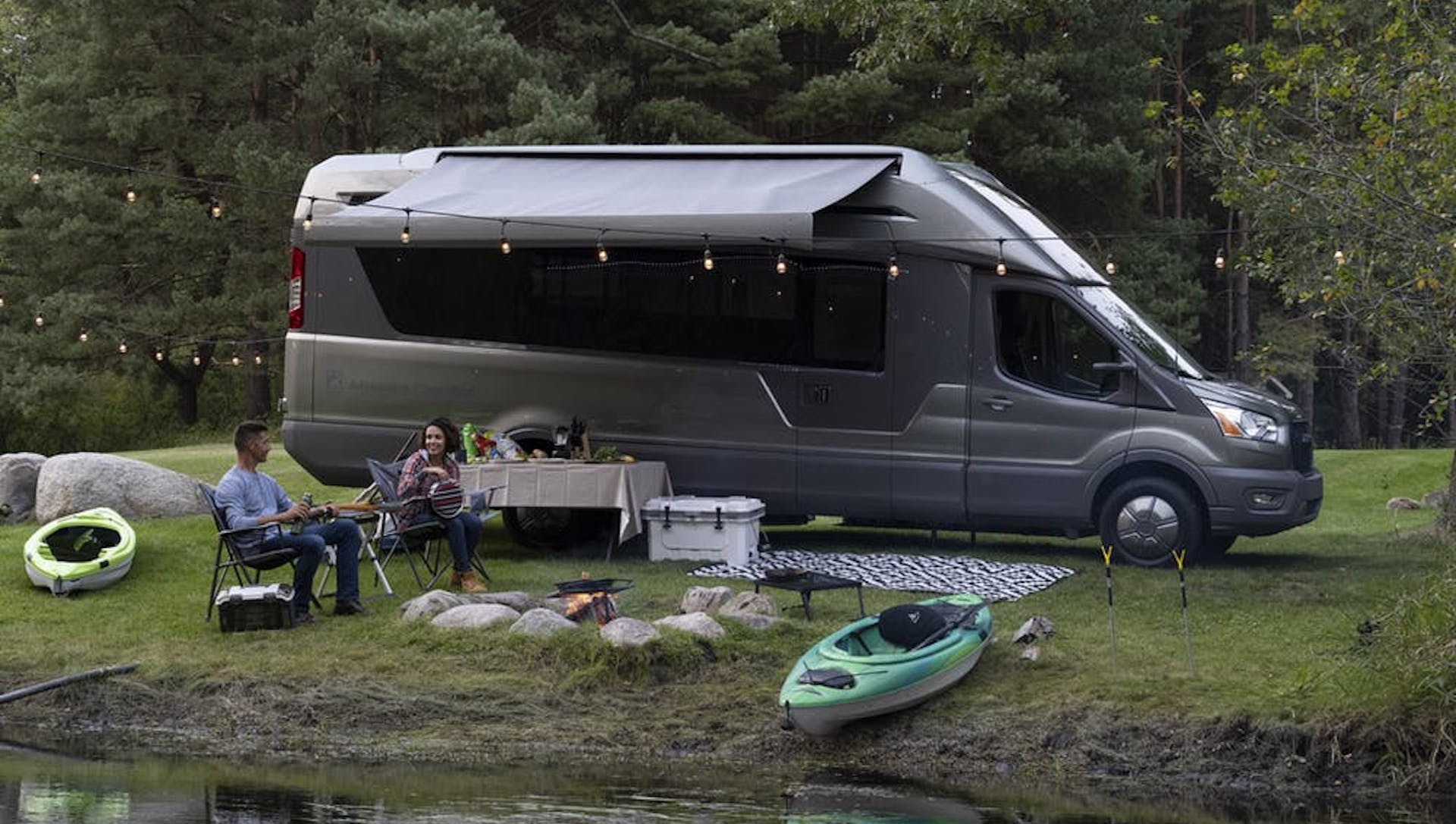

It’s only a matter of time until the recreational vehicle industry dives deeper into electrification, following in the footsteps of the passenger vehicle sector which is going full-steam-ahead with battery-powered cars, trucks, and SUVs. Thor Industries, the parent company of Airstream and Dutchmen travel trailers—among a dozen other adventure brands—seems to have a clear idea of what RVing is going to look like in the years to come. And according to it, it’ll look like the Thor Vision Vehicle concept.
Based on a Ford Transit, the Thor Vision Vehicle concept is an electric RV that promises up to 300 miles of driving range, the creature comforts of an upscale hotel, and the digital experience of cutting-edge EV. Thor did not divulge any specifications regarding performance, battery capacity, or other details surrounding how it will achieve said driving range—which is drastically better than Winnegabo’s own electric motorhome or Ford’s own E-Transit—though it highlights that an onboard fuel cell will serve as a range extender.
The fuel cell will reportedly allow the Thor Vision to travel up to 300 miles, though specifics on how this fuel cell will be powered were not included in the press release. A report by C/D, however, cites a Thor spokesperson saying a “variety of fuel options including hydrogen” will be allowed.

In addition to the fuel cell, Thor claims that other important characteristics will play into the RV’s travel worthiness, including a sleeker roofline, aerodynamic wheel covers, and narrow camera side mirrors (clearly these are for the concept stage). However, its biggest ally is weight savings, with the living quarters featuring lightweight materials throughout in order to make the Thor Vision as light as possible. Vehicle weight was not divulged.
Despite Thor wanting to keep things light for the sake of range, the futuristic RV looks quite comfortable and is packed with cool tech features. The “digital cockpit,” as Thor calls it, features two digital screens that allow the driver and passenger to control every aspect of the RV. Voice commands and Alexa integration can control interior lighting, temperature, and other automated features like TVs, blinds, digital window “tint,” and more. Proprietary software keeps the driver informed of the available driving range at all times, and allows for smartphone-to-vehicle communication in order to plan trips, find charging stations, and troubleshoot issues.

Despite the Thor Vision having a considerably longer (potential) range than its competitors, it’s worth noting that a 300-mile range is essentially nothing when it comes to road-tripping. Most avid campers and travel aficionados who spend considerable amounts of money on travel toys want to have the freedom to get away, and that typically involves long driving stints to escape big cities. Furthermore, the targeted range will further suffer once the necessary gear to live on the road is brought onboard, such as living supplies, food, water, bicycles, etc. And that’s not counting any possible range loss due to weather conditions or difficult terrain like unpaved roads, hills, etc.
And while charging infrastructure is expected to improve in years to come, spending valuable time at chargers just to reach a destination may not be what travelers want—especially those who can only escape for weekends, etc.
With that said, the Thor Vision is a cool, futuristic-as-hell RV concept, which will have to be tweaked on and improved before production proposals reach the bosses at Thor Industries.
Got a tip? Email us at tips@thedrive.com